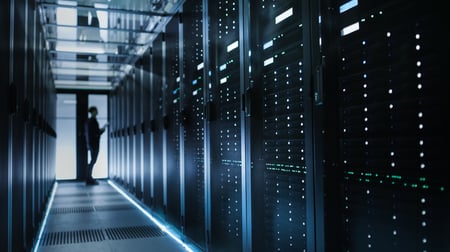 Does your organization have truly essential equipment, assets that can't stop operating without spiraling costs and elevated risk? If so, you likely have backup power services in place or you've at least considered them.
Does your organization have truly essential equipment, assets that can't stop operating without spiraling costs and elevated risk? If so, you likely have backup power services in place or you've at least considered them.
But what does it really take to keep your mission-critical systems running during a power outage? You'll need more than the right equipment.
Every step from initial systems design and installation to ongoing maintenance and periodic replacement of assets has to be handled effectively. The alternative is an unacceptable level of risk, so it's time to get started on building backup power services you can count on.
Backup power services: What's your strategy?
When thinking about what a good backup power system would look like for your company, it can pay to consider the opposite: What makes a bad system?
There are two general ways to get backup power wrong. Either your system can be missing key components, or it can be over-engineered and too costly. By avoiding these problems, you get a picture of the perfect critical power solution: one that will work in every relevant case without draining your budget.
To get this kind of backup power solution, you should start from the beginning. This means having a professional assess your needs and present infrastructure. From there, you can find the ideal hardware for your situation, along with the best practices to ensure your personnel are handling every battery and power generator safely.
Operating your new emergency power system over time means performing regular maintenance and repairs, as well as decommissioning and replacing equipment that has reached the end of its usable lifespan. You can either turn these tasks over to third-party experts or handle them internally, depending on your level of in-house expertise.
Backup power services by industry
The exact right backup power solution for your needs will depend on the types of mission-critical infrastructure you're safeguarding. Some of the top potential use cases include:
-
Critical telecom infrastructure: Telecom offices and cabinets need sophisticated battery backup solutions to ensure they can stay online at all times — this allows them to provide mission-critical communications for other organizations.
-
Data centers: On-site data centers, cloud service providers and colocation facilities are becoming major users of battery backup power solutions. Cutting-edge lithium-ion batteries are especially popular in this sector.
-
Health care facilities: Care providers rely on backup generator systems and emergency power infrastructure. If one of these systems fails, lives can be endangered.
- Financial and property management institutions: Keeping financial businesses' servers online is essential from a data management perspective.
Any organization with mission-critical digital systems, ones that would cause major setbacks if they were to suffer any downtime, has an ironclad use case for backup power services.
What level of backup power service suits you?
What should your investment in backup power services look like? That depends on how much of the management, oversight and upkeep you'd like to keep in-house. Having industry experts design and conceptualize your system is a great idea, but what role will they play going forward?
By opting for a full-scale managed service approach, you can turn every part of emergency power, from the installation of the equipment to day-to-day use and eventual replacement, into a simple monthly payment. This is an especially good option if you operate multiple facilities nationwide and want them to have a consistent backup power solution.
Whatever your preferred balance is between handling critical power services internally and turning them over to experts, there's no reason to hold off on assessing your current setup and looking for potential improvements.
Contact Concentric today to get started.


